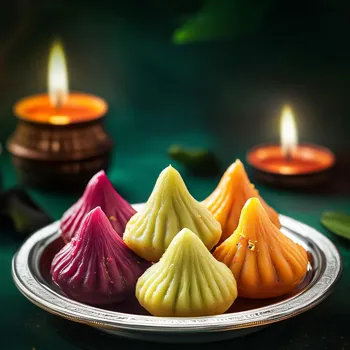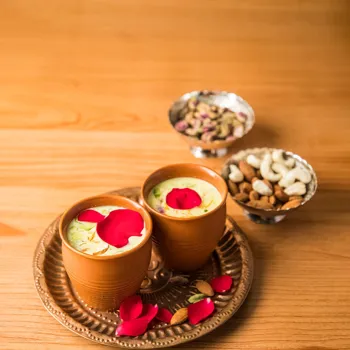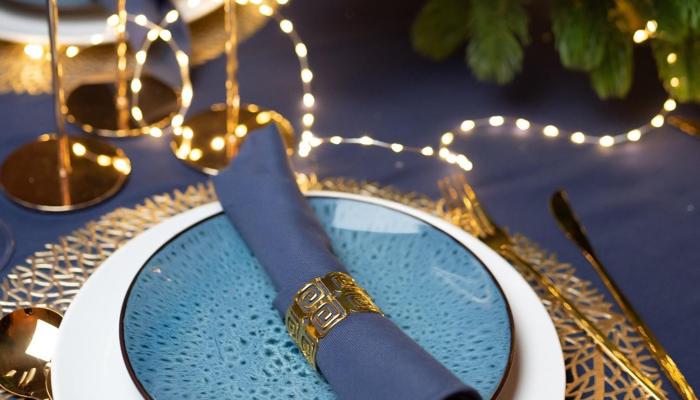Exploring the Rich Tapestry of Food in Indian Festivals: A Culinary Journey. Dive into the cultural significance and traditions!
India, a land of vibrant cultures and traditions, celebrates numerous festivals
throughout the year. These festivals are not just about prayers and rituals; they are also deeply intertwined with food. Food plays a central role, acting as a symbol of joy, prosperity, and togetherness.
Each festival has its own unique culinary traditions, highlighting the diversity of Indian cuisine and the ingenuity of home cooks across the country.
From sweet treats to savory delights, festive food is an integral part of the celebrations, enriching the cultural experience and creating cherished memories.
Food in Indian festivals: a cultural, spiritual bond that reflects heritage
The significance of food in Indian festivals goes beyond mere sustenance. It is an offering to the deities, a way to express gratitude, and a means of sharing blessings with family and friends.
Many dishes are prepared using specific ingredients believed to be auspicious or to have medicinal properties. The act of cooking and sharing food together strengthens social bonds and fosters a sense of community.
The aromas wafting from kitchens during festival time are a sensory reminder of tradition and heritage, evoking feelings of nostalgia and belonging.
Whether it's the elaborate spread prepared for Diwali or the simple yet delicious sweets offered during Raksha Bandhan, food is an essential element that defines the spirit of Indian festivities.
Each dish has a story to tell, reflecting the history, geography, and cultural values of the region it originates from.
Diwali celebrates with sweets, fostering community and family bonds
Diwali, the festival of lights, is synonymous with an array of sweets and snacks. Homes are filled with the aroma of freshly made laddoos, barfis, and chaklis. These sweet treats symbolize auspicious beginnings and the triumph of good over evil.

The tradition of exchanging sweets with neighbors and relatives fosters a sense of community and strengthens relationships. During Diwali, food is not just about taste; it's about sharing joy and spreading happiness.
Special thalis are prepared for the Lakshmi Puja, filled with offerings of fruits, sweets, and other delicacies to appease the goddess of wealth and prosperity. The entire family gathers to partake in the feast, celebrating the festive spirit and expressing gratitude for the blessings received.
The preparation of Diwali delicacies often involves family members working together, passing down traditional recipes and techniques from one generation to the next. This shared culinary experience creates lasting memories and reinforces family bonds.
Holi celebrates with food, drinks, and community spirit
Holi, the festival of colors, is celebrated with vibrant hues and delectable treats. The iconic Holi drink, thandai, is a refreshing and energizing beverage made with milk, nuts, and spices.

Sweets like gujiya, a deep-fried pastry filled with khoya and dry fruits, are a must-have during this festive season. The consumption of these rich and flavorful dishes is believed to provide energy and warmth, combating the effects of the cool spring weather.
Holi is a time for playful celebrations and social gatherings, where food is often shared and enjoyed together. The act of smearing colors on each other and then sharing a meal promotes a sense of camaraderie and unity.
Many communities organize langars, or community kitchens, during Holi, providing free food to all who wish to partake. This tradition embodies the spirit of selfless service and emphasizes the importance of sharing and giving back to the community.
Raksha Bandhan celebrates sibling bond with gifts, sweets, and rituals
Raksha Bandhan, the festival celebrating the bond between brothers and sisters, is marked by the exchange of gifts and the sharing of sweets. Sisters tie a rakhi, a sacred thread, on their brothers' wrists, symbolizing their love and protection. In return, brothers pledge to protect their sisters.
The celebration is incomplete without a selection of sweets, such as kheer, barfi, and rasgulla. These sweet treats symbolize the sweetness of the sibling bond and the joy of togetherness.
The tradition of sharing sweets during Raksha Bandhan strengthens the emotional connection between siblings and reinforces family values. Many families also prepare special meals for the occasion, featuring dishes that are favorites of both the brother and sister.
This personalized touch adds to the warmth and intimacy of the celebration.
Janmashtami celebrates Lord Krishna's birth with fasting, feasting, and vegetarian dishes
Janmashtami, the festival celebrating the birth of Lord Krishna, is observed with fasting and feasting. Devotees often observe a day-long fast, breaking it only after the midnight hour, when Lord Krishna is believed to have been born.
The feast that follows is a vegetarian affair, featuring a variety of dishes prepared using milk, curd, and butter, which are considered to be Lord Krishna's favorite foods. Makhan mishri, a simple yet delicious combination of butter and sugar, is a traditional offering to the deity.
Other popular dishes include panchamrit, a mixture of milk, yogurt, honey, sugar, and ghee, and sabudana kheer, a sweet pudding made with sago pearls. These dishes are prepared with utmost devotion and offered to Lord Krishna before being consumed by the devotees.
The act of fasting and feasting during Janmashtami is seen as a way to purify the mind and body and to connect with the divine.
AI Generated Content. Glance/InMobi shall have no liability for the content










